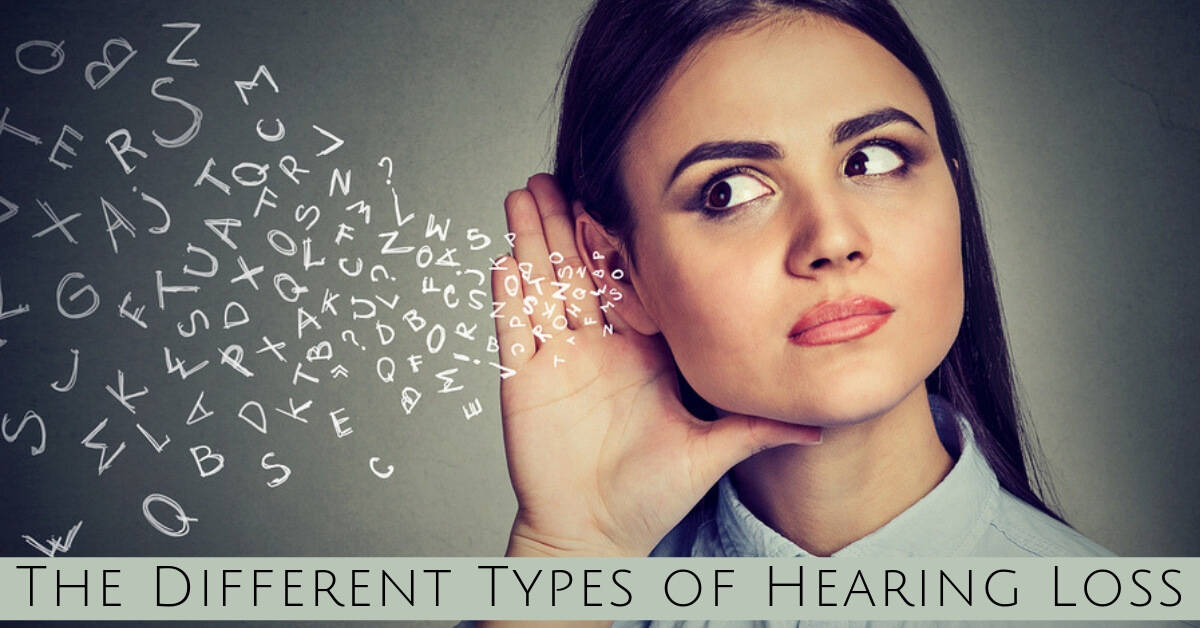
Have you noticed any recent changes to your hearing health? Do you think you might have hearing loss? Common signs of hearing loss include difficulty talking on the phone, struggling to follow conversations, or asking people to repeat themselves over and over again. You might turn up the volume of the TV, or miss the sound of the doorbell or stove alarm. If this sounds familiar, you probably have hearing loss.
There are three types of hearing loss, and knowing what kind of hearing loss you have can help you find the perfect treatment to match your lifestyle and hearing needs.
Sensorineural Hearing Loss
Sensorineural hearing loss is by far the most common type of hearing loss. This hearing loss is caused by damage to the cells in your ear. The inner ear, called the cochlea, is a circular, fluid-filled chamber lined with delicate hair cells. When sound waves vibrate the ear drum the fluid moves, and these cells sense the movement, translate them to electrical signals, and send the signals to the brain where you interpret them as sound. When the cells in the inner ear are damaged, you’re not able to hear certain sounds in certain frequencies, and you have hearing loss.
These inner ear cells are often damaged by exposure to loud noises in the environment and sensorineural hearing loss is often caused by noise induced hearing loss. Age related hearing loss, or presbycusis, is another type of sensorineural hearing loss, and as you age, the cells in your ear naturally wear out. Sensorineural hearing loss can also be caused by illness, injury, genetic factors, or ear infections.
Sensorineural hearing loss affects not only the volume of the sounds around you, but also the clarity. For example, even if your friend speaks to you more loudly than usual, you still won’t be able to understand what’s been said, because sensorineural hearing loss affects your ability to distinguish between sounds, like the consonants “s” or “th”, and increasing the volume won’t help you hear. Treating sensorineural hearing loss is all about finding hearing devices with programs that add clarity to the sound, and help you catch the sounds you’re missing.
Conductive Hearing Loss
The second type of hearing loss is conductive hearing loss. Unlike sensorineural hearing loss, which affects the clarity of the sound, conductive hearing loss mainly affects the volume, and if you’re able to increase the volume of the sounds around you, you’re able to hear quite clearly. This type of hearing loss is less common, and is usually caused by a blockage in the outer or middle ear. Conductive hearing loss can be the result of a buildup of earwax, illness, injury, ear infection, or damage to the outer ear or ear drum. Because none of the cells of the inner ear are damaged, sounds will still seem clear, just muffled or extremely quiet.
Conductive hearing loss can be in just one ear, and will often be accompanied by a feeling of pain or pressure in the ear. If you’re experiencing any pain in one or both of your ears, visit your doctor as soon as possible!
Mixed Hearing Loss
Mixed hearing loss is the final type of hearing loss. As the name suggests, it’s a combination of both sensorineural and conductive hearing loss. Normally you’ll experience one type of hearing loss first, like sensorineural hearing loss from the noisy construction sight you work on every day. An injury on the jobsite could damage your ear, and add conductive hearing loss to your hearing problems. You could also have conductive hearing loss first, for example from an ear infection, and later develop sensorineural hearing loss in the form of age-related hearing loss.
Hearing Aids for Hearing Loss
Regardless of the type of hearing loss you have, its important to look after your hearing health, and treat your hearing loss early. At Pacific Northwest Audiology, we’ll perform a thorough hearing test, look closely in your ears, and measure your ability to hear the sounds around you. Depending on the results of your hearing test, we’ll recommend the perfect device that will match your unique hearing needs and provide the treatment you need to hear the world around you clearly.
